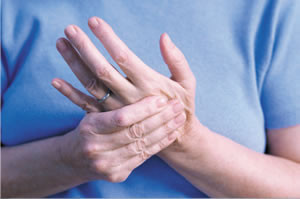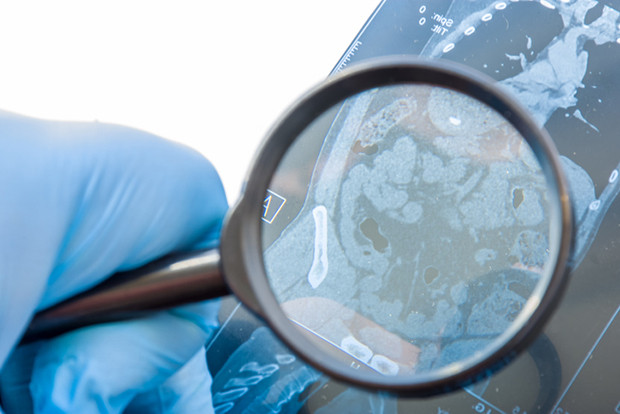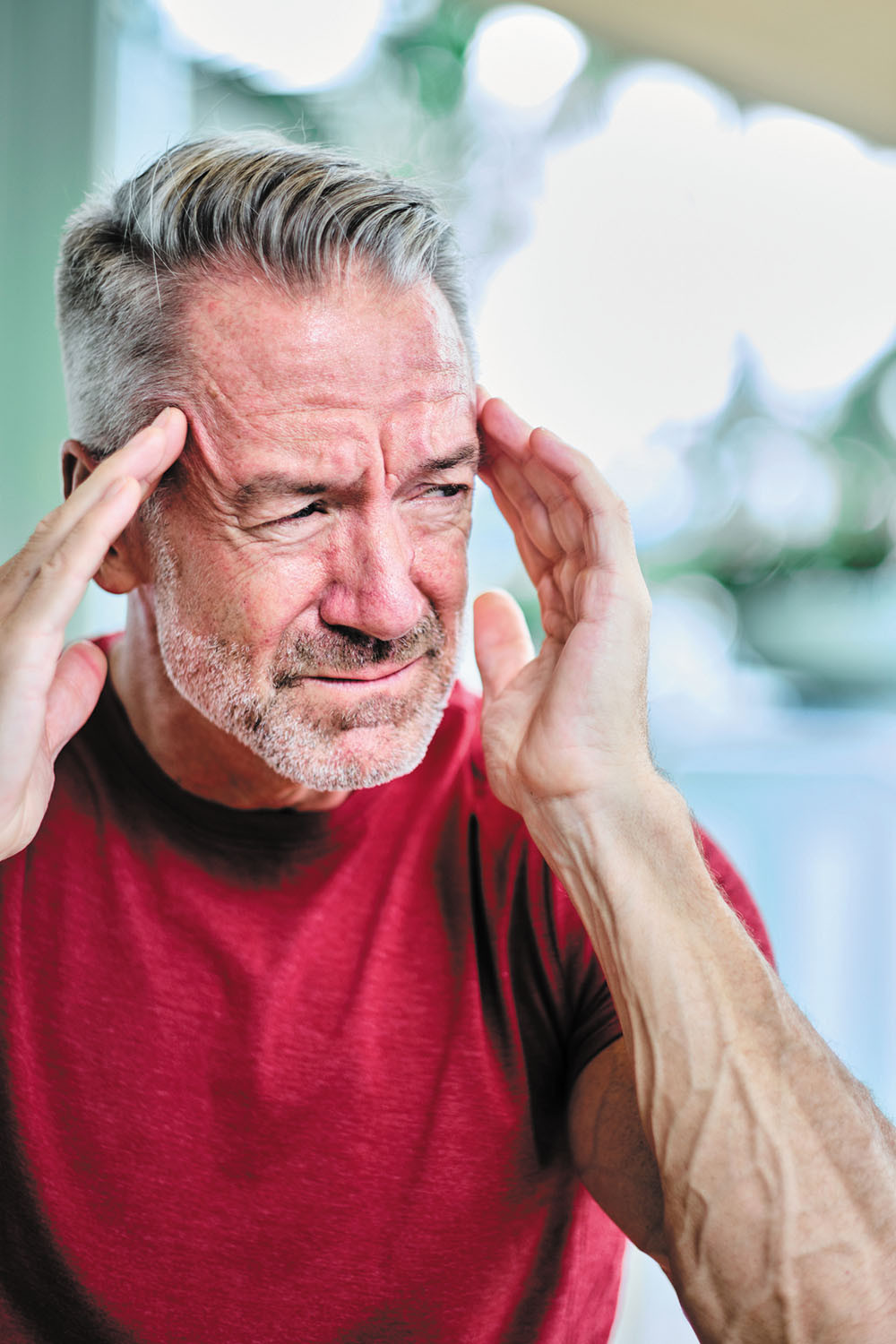
Mastitis: What to do when your breasts are painfully inflamed

How — and why — to fit more fiber and fermented food into your meals

UTI in older women: Why postmenopausal women are susceptible to urinary tract infection, and what to do about it

Can a routine vaccine prevent dementia?

Some adults may need a measles booster shot. Who should get one and why?

Less butter, more plant oils, longer life?

Healthier planet, healthier people

Counting steps is good — is combining steps and heart rate better?

Appendix pain: Could it be appendicitis?

Can saw palmetto treat an enlarged prostate?
Diseases & Conditions Archive
Articles
Is fibromyalgia real?
Ask the doctors
Q. My friend was recently diagnosed with fibromyalgia, but it seems like she might be imagining her symptoms. Is fibromyalgia a real condition?
A. The short answer to your question is yes. Fibromyalgia is a real condition that affects some four million Americans. It's a chronic pain syndrome that experts believe may be caused by a malfunctioning nervous system. Researchers using magnetic resonance imaging to examine the brains of people with fibromyalgia have found abnormalities in the part of the brain that processes pain signals from the body. It appears that this part of the brain is essentially boosting the intensity of normal pain signals, potentially causing the body to feel pain without a physical cause.
On call: What causes shaky hands?
Q . I've started to notice a slight shakiness in my writing hand. Is this just normal aging or should I get my shaky hands checked out?
A. If the shakiness is sudden or recent, you should talk to a doctor. It may be nothing serious—for example, just a reversible side effect from a medication or from too much caffeine. However, tremors could be an early sign of a more serious condition, like Parkinson's disease. In that case, you could benefit from early diagnosis and starting treatment.
Defend yourself from diverticulitis
Adequate fiber can protect against this painful colon condition.
Image: Shidlovski/Getty Images
About half of Americans ages 60 to 80 have diverticulosis, a condition in which pea-sized pouches, called diverticula, bulge outward from the colon. After age 80, almost everyone has it.
Most of the time the pouches don't cause any problems, but if the diverticula become inflamed or infected, the result is diverticulitis, which produces symptoms like fever, nausea, vomiting, and pain or tenderness in the lower abdomen. It's unclear why this happens, but it's generally thought that the pouches become infected after stool or bacteria get caught in them.
How do you avoid kidney stone attacks?
On call
Q. I want to avoid another kidney stone attack. What's your advice about diet, coffee, tea, and alcohol?
A. The foods you eat and the amount of fluid you drink can contribute to some types of kidney stones. Certainly, you can help prevent recurrent kidney stones by paying attention to your fluid and food intake.
Should I get a COVID-19 antibody test?
Ask the doctor
Q. Should I get a test for COVID-19 antibodies, even though I've never had any symptoms and I don't think I've had the virus?
A. A blood test for COVID-19 antibodies tells you if you have been infected in the past; it does not accurately tell you if you are currently infected. You can get an antibody test through your doctor, or possibly through a testing center set up by your state or city.
Should adult kids get a COVID-19 test before a visit home?
Ask the doctor
Q. Should I make my kids get tested for COVID-19 before they come to visit me?
A. As we go to press, in most communities in the United States and Europe, the virus still is widespread — particularly among young adults. Many young adults who become infected do not develop symptoms, and therefore may not suspect they are infected. Worse, they may be shedding the virus and able to infect others. Older people are more vulnerable to becoming severely ill from the virus than young adults (although some young adults and even children can become very ill). So if my kids had symptoms that might indicate they had COVID-19, I'd ask them not to come. If they had no symptoms but were living in a "hot spot," I'd ask them to get tested before they traveled — and not to visit if they tested positive. I would hate not to see the kids, but it's a sacrifice we have to make until we control the virus.
5 action steps for quitting an addiction
Because change is so difficult, it's useful to have a guide when attempting to kick an addiction to drugs, alcohol or behavior. Research shows that the following steps can help you move toward your recovery goals. You have the greatest chance of success if you adopt all five steps.
1. Set a quit date. It might be helpful to choose a meaningful date like a special event, birthday, or anniversary.
What are the long-lasting effects of COVID-19?
Ask the doctor
Q. I read that the death rate from COVID-19 is going down, but that people who recover from the infection still can remain sick for a long time. Is that true?
A. It is true, but we don't yet know how big the problem is: COVID-19 has been with us for only a year, and there hasn't been enough time to know the long-term effects.
Why am I itchy all over?
The potential causes may be hard to pin down. Here are some of the most common ones — and what to do about them.
Sometimes it's easy to know why a particular part of your body is itchy. Maybe you have a bug bite, allergies, or a visible skin condition such as eczema. It's harder to know the cause when there's nothing obvious behind all-over, generalized itching. "It's the most common skin complaint in people over age 65," says Dr. Kenneth Arndt, a dermatologist and former medical editor of the Harvard Special Health Report Skin Care and Repair.
Potential causes
Generalized itching has many potential triggers. One is aging. "The skin barrier doesn't work as well as it used to, and things that may not have irritated you before may now be absorbed in the skin and cause itching," Dr. Arndt explains. "The skin also develops a somewhat impaired immune response, a reduction in fat and blood flow, and altered sensory perception, making it more prone to itching."
What to expect after COVID
Experts say that while there are many unknowns about long-term COVID effects, it's hoped that more information will be available soon.
A growing number of Americans have now experienced a bout of COVID-19, and doctors are only just beginning to learn more about the aftereffects of the infection.
"Reports are coming out describing long-term lung effects — which is not surprising, as scarring may occur and cause permanent impairment — and also of neurological, cardiovascular, and kidney effects," says Dr. David Christiani, a professor of medicine at Harvard Medical School and a pulmonary physician at Massachusetts General Hospital.

Mastitis: What to do when your breasts are painfully inflamed

How — and why — to fit more fiber and fermented food into your meals

UTI in older women: Why postmenopausal women are susceptible to urinary tract infection, and what to do about it

Can a routine vaccine prevent dementia?

Some adults may need a measles booster shot. Who should get one and why?

Less butter, more plant oils, longer life?

Healthier planet, healthier people

Counting steps is good — is combining steps and heart rate better?

Appendix pain: Could it be appendicitis?

Can saw palmetto treat an enlarged prostate?
Free Healthbeat Signup
Get the latest in health news delivered to your inbox!
Sign Up











